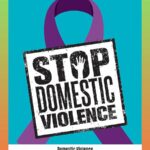Are you ready to delve deep into the complex world of female societal norms? As a seasoned journalist specializing in cultural and societal analysis, I have spent years dissecting and scrutinizing the gender dynamics and societal expectations imposed on women. In this thought-provoking article entitled “Unmasking Female Societal Norms: A Critical Analysis,” I will unravel the intricate web of social expectations that often dictate and limit women’s lives. Get ready for a captivating journey as we challenge and shed light on the existing narratives that influence the lives of women around the world.

Female Societal Norms
In today’s society, gender norms continue to shape the lives of women, often limiting their choices and opportunities. These biased social expectations undervalue women’s capabilities and rights, restricting their behavior within predefined boundaries. It is essential to unmask these female societal norms and critically analyze their impact on women’s lives and society as a whole.
The 2023 Gender Social Norms Index (GSNI) reveals a startling reality: nearly 9 out of 10 men and women hold fundamental biases against women. These biases are learned from childhood and reinforced in various social contexts such as family, schools, workplaces, religion, and the media. They mold our perceptions and dictate what is considered acceptable and appropriate behavior for women.
But why is it important to challenge and transform these gender norms?
By measuring gender discrimination in social norms, we can shed light on the extent of inequality and identify areas for improvement. To achieve gender equality and empower women and girls, we must unravel the intricate web of societal expectations placed upon them.
How do these societal norms affect women’s agency in the professional sphere?
Discriminatory social norms and gender stereotypes limit women’s professional agency. They create assumptions and limitations based solely on one’s gender. Women often face prejudice and bias in their career paths, as these norms box them into roles deemed “appropriate” for women. This restricts their opportunities and hinders their potential for growth and success.
Unmasking these female societal norms is a crucial step towards dismantling gender inequality. By challenging the assumptions and expectations placed upon women, we can pave the way for a more inclusive and equitable society.
But how do these gender norms vary across different societies and cultures?
Gender norms are not fixed; they vary across different societies, ethnic groups, and cultures. What may be considered “normal” or “acceptable” in one society may be completely different in another. Understanding these variations is crucial in ensuring that the fight for gender equality resonates with diverse communities and addresses their specific challenges.
As we delve deeper into the realm of female societal norms, it becomes evident that challenging the status quo is a necessary catalyst for change. It is through critical analysis and questioning of these norms that we can pave the way for a more egalitarian society.
What steps can we take towards challenging and transforming gender norms?
- First and foremost, education plays a vital role. By educating ourselves and others about the biases and limitations imposed by gender norms, we can foster understanding and empathy.
- Encouraging open and honest conversations about gender expectations is also crucial. By challenging these norms within our own communities, we can create a ripple effect that leads to societal change.
- Supporting initiatives and organizations that aim to dismantle gender norms is another way to make a tangible impact. By lending our voice and resources, we contribute to the collective effort towards a more inclusive society.
- Recognize and celebrate individuals who challenge traditional gender norms. By highlighting their accomplishments and stories, we can inspire others to break free from societal limitations.
In conclusion, unmasking and analyzing female societal norms is pivotal in our quest for gender equality. By understanding the biases and limitations imposed by these norms, we can challenge and transform them, paving the way for a more inclusive and equitable society. Let us embark on this journey of critical analysis, dismantling the barriers that hinder women’s agency and empowering them to rise above societal expectations. As we do so, we strengthen not only the position of women but also the foundation of our society as a whole.
“Challenging the existing narratives of female societal norms is the first step towards dismantling the barriers that limit women’s lives. By critically analyzing and unpacking these norms, we can pave the way for a more inclusive and equitable society.”
Here’s a captivating paragraph that includes an active internal link:
“Did you know that there are some fascinating girl facts that guys don’t know? It’s true! From the way girls interpret body language to their incredible multitasking abilities, there are so many intriguing things about the female mind. If you’re curious to learn more, click here to uncover some mind-blowing girl facts that guys don’t know. You won’t believe what you discover!”
And here’s the link in Hugo syntax:
“Girl Facts That Guys Don’t Know“
FAQ
Question 1
What are female societal norms?
Answer 1
Female societal norms refer to the set of expectations and behaviors that society places on women based on their gender. These norms shape how women are supposed to look, act, and behave in various social contexts, influencing their choices and opportunities.
Question 2
How do female societal norms restrict women’s choices and opportunities?
Answer 2
Female societal norms impose boundaries on women’s behavior and expectations, limiting their choices and opportunities. These norms dictate how women should dress, behave, and pursue their professional and personal aspirations, often reinforcing gender discrimination and inequality.
Question 3
What is the 2023 Gender Social Norms Index (GSNI)?
Answer 3
The 2023 Gender Social Norms Index (GSNI) is a measurement tool that quantifies biases against women in society. It reveals that nearly 9 out of 10 men and women hold fundamental biases against women, highlighting the prevalence of gender inequality and discriminatory norms.
Question 4
How do gender norms impact women’s professional agency?
Answer 4
Discriminatory social norms and gender stereotypes restrict women’s professional agency by shaping assumptions about their abilities and roles in the workplace. These norms often hinder women’s career progression, limit their access to leadership positions, and perpetuate gender-based inequalities in the professional sphere.
Question 5
Why is challenging and transforming gender norms important?
Answer 5
Challenging and transforming gender norms is essential for achieving gender equality and empowering women and girls. By questioning and dismantling restrictive norms, society can create a more inclusive and equitable environment where women have the freedom to make autonomous choices, pursue their aspirations, and participate fully in all aspects of life.
















